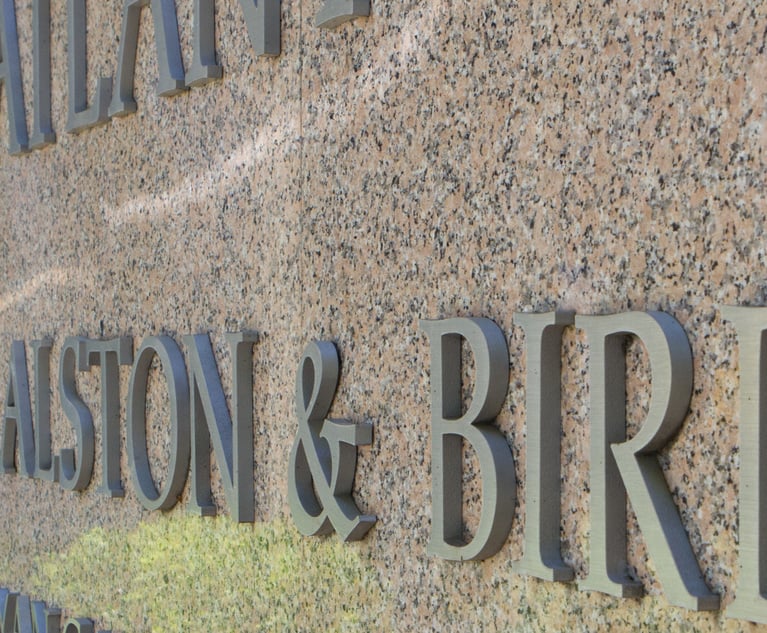 Robert Mueller, former special counsel for the U.S. Department of Justice, testifies before the House Judiciary Committee in Washington, D.C., on July 24, 2019. (Photo: Diego M. Radzinschi/ALM)
Robert Mueller, former special counsel for the U.S. Department of Justice, testifies before the House Judiciary Committee in Washington, D.C., on July 24, 2019. (Photo: Diego M. Radzinschi/ALM)Mueller's Return to Wilmer Bolsters Firm's 'Brand' for Investigations
The former special counsel is back in the headlines, thanks to renewed scrutiny on President Trump's foreign affairs.
October 01, 2019 at 04:12 PM
5 minute read
It's been over six months since former Special Counsel Robert Mueller delivered his report on Russia's efforts to interfere in the 2016 presidential election to U.S. Attorney General William Barr, and the storied attorney is again the subject of daily headlines.
The announcement Tuesday that Mueller is returning to Wilmer Cutler Pickering Hale and Dorr as a partner is the exception; it's a story of Mueller's own making. The others—"Trump may have lied to Mueller, House Democrats say," "Trump Pressed Australian Leader to Help Barr Investigate Mueller Inquiry's Origins," to cite two from just Monday—owe to the intensified scrutiny around President Donald Trump's use of high-level diplomacy on behalf of his own personal political objectives as the House begins its impeachment inquiry.
There's little surprising about Mueller, along with special counsel team members Aaron Zebley and James Quarles, returning to Wilmer, where all three previously held partnerships. Beyond the question of familiarity, the firm has a longstanding reputation for expertise in investigations.
"It's one of the core elements of our brand," Wilmer co-managing partner Robert Novick said Tuesday.
Thanks to a track record that dates back to the Enron scandal at the turn of the century, Novick does not believe that the current climate in Washington is prompting his firm and competitors alike to increase the value they place on investigations firepower.
"I don't connect the business opportunities for this kind of work with anything going on with the current administration," he said. "There's been investigations work coming up in all kinds of contexts for the past 20 years. It's a stable part of the law firm business model through time."
Most premier law firms would be happy to add a former special counsel, FBI director or U.S. attorney for a prime region like Northern California to their roster. With Mueller, Wilmer gets all three. The 75-year-old also will undoubtedly present mentorship opportunities for rising attorneys.
"He's had so many life and practice experiences from being an assistant U.S. attorney to a U.S. attorney to FBI director to the role of special counsel to private practitioner," Novick said. "There are many, many lawyers at the firm looking forward to working with him or working with him again."
Millennials in particular, who've come to the practice of law in an era more attuned to the question of work-life balance, might chafe at Mueller's legendary work ethic. A 2008 magazine profile told the story of his time serving as acting deputy attorney general in 2001. On the Monday after George W. Bush's inauguration. Mueller's own deputy arrived to find an unsigned note from the boss on his chair: "It's 0700. Where are you?"
Since Mueller and his team wrapped up their nearly two years of work investigating the connections between the 2016 Trump campaign and Russia along with the question of obstruction of justice, his staff has slowly been trickling back into private practice.
Jeannie Rhee, the third Wilmer partner to join the team along with Zebley and Quarles, joined Paul, Weiss, Rifkind, Wharton & Garrison's growing D.C. office as a white-collar litigation partner in June. She had been focused on the case against three Russian firms and 13 individuals charged with carrying out an alleged campaign to sow discord within the U.S. electorate.
Greg Andres, the lead trial attorney in the successful prosecution of Paul Manafort, announced his return to Davis Polk & Wardwell in May.
In July, veteran terrorism prosecutor Zainab Ahmad, who joined Mueller's team after nearly a decade in the U.S. attorney's office in Brooklyn, landed at Gibson, Dunn & Crutcher in New York as a white-collar partner.
Andrew Weissmann, who went from fraud division chief at the U.S. Department of Justice to the Mueller team, is now a fellow at New York University School of Law. Michael Dreeben, a veteran appellate attorney for the DOJ and criminal law expert on the special counsel's team, announced his retirement from federal government service in June.
In Mueller's most recent appearance in the limelight, testifying in front of the House Judiciary Committee in July, he was reluctant to divulge any details beyond referring his interlocutors to the 448-page report. The exception came when he was questioned about the impartiality of his team.
"We strove to hire those individuals that could do the job," Mueller said, in his most animated remarks of the hearing.
"I have been in this business for almost 25 years. And in those 25 years, I have not had occasion, once, to ask somebody about their political affiliation. It is not done," Mueller said. "What I care about is the capability of the individual to do the job and do the job quickly and seriously and with integrity."
This content has been archived. It is available through our partners, LexisNexis® and Bloomberg Law.
To view this content, please continue to their sites.
Not a Lexis Subscriber?
Subscribe Now
Not a Bloomberg Law Subscriber?
Subscribe Now
NOT FOR REPRINT
© 2024 ALM Global, LLC, All Rights Reserved. Request academic re-use from www.copyright.com. All other uses, submit a request to [email protected]. For more information visit Asset & Logo Licensing.
You Might Like
View All
A&O Shearman, Hogan Lovells and the Stories That Shaped Africa This Year
4 minute read
Bottoming Out or Merging Up? Law Firms That Shuttered in 2024

Trending Stories
- 1'Largest Retail Data Breach in History'? Hot Topic and Affiliated Brands Sued for Alleged Failure to Prevent Data Breach Linked to Snowflake Software
- 2Former President of New York State Bar, and the New York Bar Foundation, Dies As He Entered 70th Year as Attorney
- 3Legal Advocates in Uproar Upon Release of Footage Showing CO's Beat Black Inmate Before His Death
- 4Longtime Baker & Hostetler Partner, Former White House Counsel David Rivkin Dies at 68
- 5Court System Seeks Public Comment on E-Filing for Annual Report
Who Got The Work
Michael G. Bongiorno, Andrew Scott Dulberg and Elizabeth E. Driscoll from Wilmer Cutler Pickering Hale and Dorr have stepped in to represent Symbotic Inc., an A.I.-enabled technology platform that focuses on increasing supply chain efficiency, and other defendants in a pending shareholder derivative lawsuit. The case, filed Oct. 2 in Massachusetts District Court by the Brown Law Firm on behalf of Stephen Austen, accuses certain officers and directors of misleading investors in regard to Symbotic's potential for margin growth by failing to disclose that the company was not equipped to timely deploy its systems or manage expenses through project delays. The case, assigned to U.S. District Judge Nathaniel M. Gorton, is 1:24-cv-12522, Austen v. Cohen et al.
Who Got The Work
Edmund Polubinski and Marie Killmond of Davis Polk & Wardwell have entered appearances for data platform software development company MongoDB and other defendants in a pending shareholder derivative lawsuit. The action, filed Oct. 7 in New York Southern District Court by the Brown Law Firm, accuses the company's directors and/or officers of falsely expressing confidence in the company’s restructuring of its sales incentive plan and downplaying the severity of decreases in its upfront commitments. The case is 1:24-cv-07594, Roy v. Ittycheria et al.
Who Got The Work
Amy O. Bruchs and Kurt F. Ellison of Michael Best & Friedrich have entered appearances for Epic Systems Corp. in a pending employment discrimination lawsuit. The suit was filed Sept. 7 in Wisconsin Western District Court by Levine Eisberner LLC and Siri & Glimstad on behalf of a project manager who claims that he was wrongfully terminated after applying for a religious exemption to the defendant's COVID-19 vaccine mandate. The case, assigned to U.S. Magistrate Judge Anita Marie Boor, is 3:24-cv-00630, Secker, Nathan v. Epic Systems Corporation.
Who Got The Work
David X. Sullivan, Thomas J. Finn and Gregory A. Hall from McCarter & English have entered appearances for Sunrun Installation Services in a pending civil rights lawsuit. The complaint was filed Sept. 4 in Connecticut District Court by attorney Robert M. Berke on behalf of former employee George Edward Steins, who was arrested and charged with employing an unregistered home improvement salesperson. The complaint alleges that had Sunrun informed the Connecticut Department of Consumer Protection that the plaintiff's employment had ended in 2017 and that he no longer held Sunrun's home improvement contractor license, he would not have been hit with charges, which were dismissed in May 2024. The case, assigned to U.S. District Judge Jeffrey A. Meyer, is 3:24-cv-01423, Steins v. Sunrun, Inc. et al.
Who Got The Work
Greenberg Traurig shareholder Joshua L. Raskin has entered an appearance for boohoo.com UK Ltd. in a pending patent infringement lawsuit. The suit, filed Sept. 3 in Texas Eastern District Court by Rozier Hardt McDonough on behalf of Alto Dynamics, asserts five patents related to an online shopping platform. The case, assigned to U.S. District Judge Rodney Gilstrap, is 2:24-cv-00719, Alto Dynamics, LLC v. boohoo.com UK Limited.
Featured Firms
Law Offices of Gary Martin Hays & Associates, P.C.
(470) 294-1674
Law Offices of Mark E. Salomone
(857) 444-6468
Smith & Hassler
(713) 739-1250











